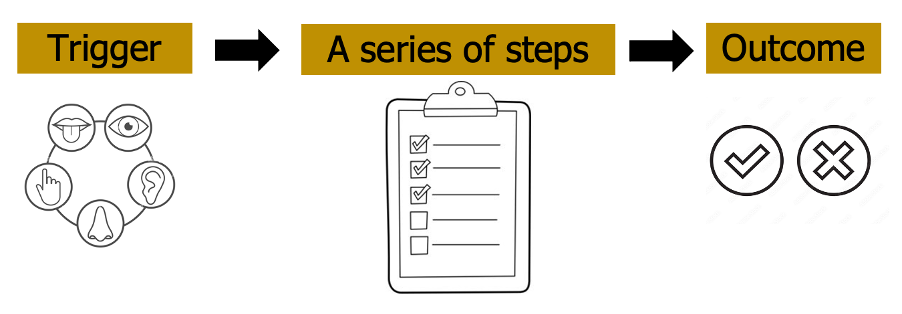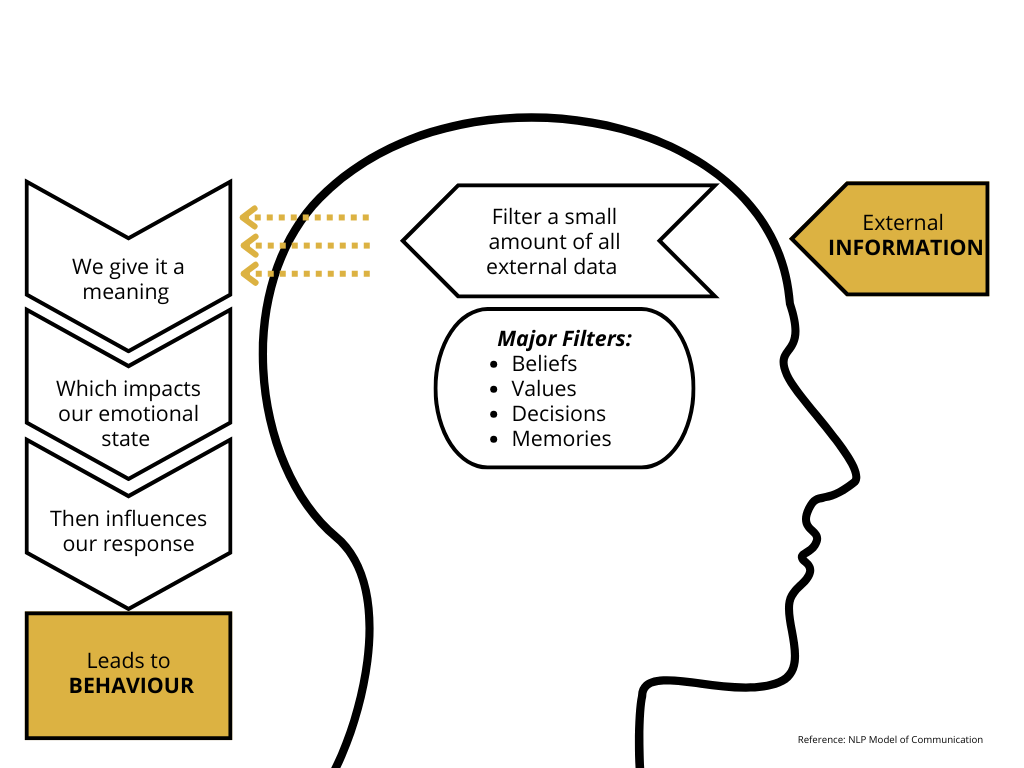Get in touch
Phone: 0438 101 090 / 0408 564 260
Email: hello@leadersnetworkgroup.com.au
Your Thinking Determines Your Results
To achieve our goals in business and life, we must be curious about our thoughts, as our thinking shapes everything in our lives!

Whatever you want to create in your life won’t just happen; you need to take charge of your life to make it happen, and it all begins with your thinking.
Multiple factors influence our thinking. Our beliefs, values, memories, education, and health are key elements that shape our daily thoughts. These factors affect the decisions we make based on our thinking, and every choice carries consequences.
“Whether you think you can or you think you can't – you're right.” Henry Ford
Our thoughts influence our lives, and it's important to remember that they don’t define us. A thought serves as a representation of something, much like a map. This representation conveys another idea through corresponding characteristics. For example, a written goal represents what you wish to achieve. Consequently, our thoughts about that goal reflect its significance to us and shape the actions we are willing to take to realise it. The well-known quote by Henry Ford captures this perfectly: “Whether you think you can or you think you can't – you're right.”
A belief is a convenient assumption
A belief is an idea we consider true, even if we lack evidence to support it. False beliefs can lead us to incorrect conclusions, so it’s valuable to question and challenge our beliefs continually. We can’t just trust in ourselves to achieve our goals. However, we can have faith in our capability to reach those goals if we take the necessary actions to make them happen.
Our values are emotional states
Our values are fundamentally emotional states that we desire to experience consistently. They represent what we hold to be true and believe in. Values shape and drive our daily decisions, whether we realise it or not. Values such as love, commitment, relationships, integrity and discipline, to name a few, will influence decisions made daily.
Everything is now just a memory
Everything that happened in the past is now just a memory. This could be an hour ago or a day, week, month, year or ten years. We now only have a memory of a memory, so being present in the moments when those memories are being created is crucial. Our memories influence our thinking because they represent evidence of something that happened. This could be evidence that something worked and was good and right, or it could be the converse of that. Either way, those memories will influence our thinking and decisions.
Education shapes our knowledge
Our choices in education shape our knowledge. I’m not referring to formal university education. I mean the learning that comes from a lifelong commitment to personal growth. The choice to continually learn and evolve as individuals to become our best selves is available to everyone. We can all do more reading and listening, seek mentorship and embrace lifelong learning. To use a garden analogy, we are either green and growing or ripe and rotting.
Health will influence thinking
The quality of our health will influence our thinking. Health in mind, body, and spirit is crucial to how we show up for ourselves daily. We may not always be able to control what happens to us. However, we can control how we respond to what happens to us. Recently, my granddaughter had a serious off-road motorbike accident. Her decision to ride this bike in the conditions in which she did resulted in two broken legs, a fractured jaw, bleeding on her brain, concussion and many lacerations across her body. She is alive and able to recover. This is the main thing, and she knows it. This accident has affected not only her but all who are close to her as well and is now shaping her emotions, feelings, values and beliefs about life and how fragile it can be, even when you are young, fit and physically healthy.
“A man is but a product of his thoughts, what he thinks, he becomes." Mahatma Gandhi.
The more curious you are about why, what and how you think, the more you can dig into the impact of your thoughts and how you can use them to influence your actions to get the desired results. All it needs is to be clear about what you want most and be willing to take the action required to achieve it in the long run. This will often mean trading off what you want now. Discipline is the difference between what you want now and what you want most. As Mahatma Gandhi said, “A man is but a product of his thoughts, what he thinks, he becomes.”
By maintaining conscious awareness and deliberately guiding our thoughts towards what we want to create, we significantly improve our chances of achieving it. Consider these three steps to help shape your thinking.
Step 1: Understand how your thinking develops.
Thinking is fundamentally the process through which we assign meaning to things. We focus on information from our external environment that relates to our beliefs, values, memories, education, and health, giving meaning that aligns with these.
We gather raw external data daily through sight, taste, sound, touch, or smell. This raw data holds no meaning for us at this stage, as it is simply data. Our brains then process this external information, assigning it meaning based on our beliefs, values, memories, education, and health, and we subsequently act based on that meaning. As Tony Robbins famously said, “Nothing in life has any meaning except the meaning you give it.”
Step 2 - Be aware of when it’s essential to navigate your thinking
You could easily argue that it’s always essential to navigate your thinking. However, there are cues you can pick up on that will signal that you might need to bring some consciousness or deliberate awareness and concentration to your thoughts. Here are some of them, and most, if not all, will result in you not feeling the way you want to because you’ve given it a negative or limiting meaning.
Pay attention when you:
- Notice you have been triggered or impacted negatively.
- Feel you are in a mood or a ‘funk’.
- Focussing on things you can’t control.
- Operating automatically, without giving conscious thought to the situation.
- Regret what you just did.
These are all great triggers for knowing when you must focus your thinking!
Step 3 - Apply strategies to influence your thinking
When we want to change our thinking, we use strategies. Everything is a strategy.
Strategies are merely a series of steps that equal a behaviour. Right now, you have a strategy for reading this article, brushing your teeth, reacting when someone says something offensive, etc. Most of our strategies are on autopilot, and they happen automatically.
When we want to create a specific outcome or change how we deal with things, we must change our strategies. Our current strategies are giving us our current results, so if we change the strategy, we change the result. Some of the most valuable methods to create and apply are strategies to use when triggered.
A strategy includes the following: A trigger (something we see, touch, taste, smell or hear that kickstarts the strategy) - a series of steps - (which results in) an outcome.

Final Thought
When you know what you want to achieve in business and life, curiosity about how your thoughts influence and shape everything is invaluable. Taking charge of your life means taking charge of your mindset. Awareness of the impact of beliefs, values, memories, education, and health will affect your thinking and, consequently, your decisions and choices.
Use these three steps as a starting point to learn more about your thoughts and the choices you are making to get the results that you want.
Want to expand your thinking and take your leadership to the next level?
Schedule your free 45-minute consultation today!





